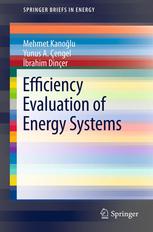

Most ebook files are in PDF format, so you can easily read them using various software such as Foxit Reader or directly on the Google Chrome browser.
Some ebook files are released by publishers in other formats such as .awz, .mobi, .epub, .fb2, etc. You may need to install specific software to read these formats on mobile/PC, such as Calibre.
Please read the tutorial at this link: https://ebookbell.com/faq
We offer FREE conversion to the popular formats you request; however, this may take some time. Therefore, right after payment, please email us, and we will try to provide the service as quickly as possible.
For some exceptional file formats or broken links (if any), please refrain from opening any disputes. Instead, email us first, and we will try to assist within a maximum of 6 hours.
EbookBell Team

4.3
88 reviewsEfficiency is one of the most frequently used terms in thermodynamics, and it indicates how well an energy conversion or process is accomplished. Efficiency is also one of the most frequently misused terms in thermodynamics and is often a source of misunderstanding. This is because efficiency is often used without being properly defined first. This book intends to provide a comprehensive evaluation of various efficiencies used for energy transfer and conversion systems including steady-flow energy devices (turbines, compressors, pumps, nozzles, heat exchangers, etc.), various power plants, cogeneration plants, and refrigeration systems. The book will cover first-law (energy based) and second-law (exergy based) efficiencies and provide a comprehensive understanding of their implications. It will help minimize the widespread misuse of efficiencies among students and researchers in energy field by using an intuitive and unified approach for defining efficiencies. The book will be particularly useful for a clear understanding of second law (exergy) efficiencies for various systems. It may serve as a reference book to the researchers in energy field. The definitions and concepts developed in the book will be explained through illustrative examples.